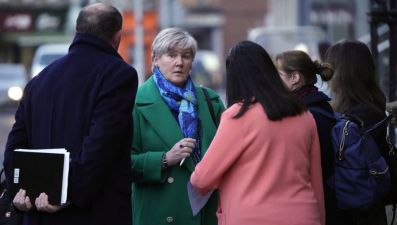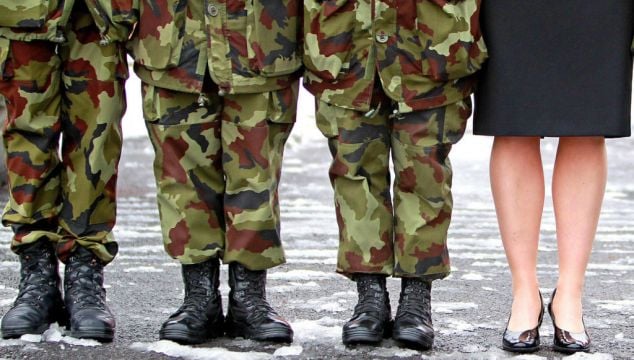The chief executive of the Dublin Rape Crisis Centre, Noeline Blackwell has said that she had been shocked but not surprised at the independent review into the Defence Forces,
Many of the details in the report had already been flagged in a thesis by Senator Tom Clonan 20 years ago, she told RTÉ radio’s Morning Ireland.
There was “a lot of straight talking” in the report. “Every word is understandable”.
The report showed “again and again” that people serving in the Defence Forces, particularly women, were working in workplaces that were systematically unsafe.
It had been worthwhile, she said. It highlighted that there were problems that needed to be addressed at every level. It had recommended a statutory inquiry which had been on the cards for the past year.
Ms Blackwell said that the Defence Force’s complaints system, which had been devised in the 1950s and to which a number of tweaks had been made, had no place in modern day life.
There had been a culture of total disrespect and abuse, not only of women but of men as well, but mainly of women, it was something that could no longer be denied.
“So I think maybe what has changed is that Government focus, setting up that group, funding it, letting it do its report and accepting recommendations.”
Members of the Defence Forces had been scared to report what was happening to them, scared to report actual crimes for fear that they would be victimized or that their complaint would be ignored, she added.
“While this report is not investigating individual complaints, it's looking at the whole system. And according to it, it's heard too many reports of reprisals, real reprisals, people being made to do what they call the dirty work, people being set aside, people being told that they had to suppress the complaint.
“And in an organisation which depends on people obeying orders, people felt they had to do what that was. So people who took complaints through needed extraordinary stamina. That should not be, that's a breach of every single right that a person has as a human being.”
Sexual harassment remained a problem in the Defence Forces, she said. “We in Dublin Rape Crisis Centre, we would say that in general that there still aren't good enough systems.
"Compared to other places, the Defence Forces did not have structures in place, and the reprisals were serious and often drove people out of the Defence Forces."
When asked if there was a role for the Gardaí in investigating some of these cases, Ms Blackwell said there was and the report recommended change in legislation to ensure that people could report incidents to the Gardaí. However, she warned that people might not be prepared to go through the legal system.

“First of all, the behaviour has to stop. I think what's good about this report is it says action has to be taken on a number of fronts.
"Yes. Set up your statutory inquiry, but also fix the complaints process so that that is acceptable. People can be supported to go to the guards in the correct situation, but we cannot have a core state institution that is not amenable to justice and that the guards are not involved.
“This is an important report and can be really seminal in changing the Defence Forces for the better. Provided it is implemented and provided the resources are available for it."
She said some changes can be implemented quite quickly and the ones that can be implemented now can be useful for people who are currently serving and people serve in the future.







